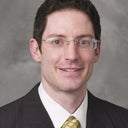Considering Rhinoplasty, Should I Worry About Hay Fever?
Consider rhinoplasty. Bit worried about sensetive tissue/septum(?); bit wounded & bleeding somethimes. Related 2 hayfever 4 pressure inside & sneeze. Therefore; what would be wise? Any advices on fragile 'bleeding' inside tissue & hayfever during & after chirurgy? No need 4 worries? And what about hayfever medication after nosejob? Like to know all your expierences related to the above standing details. Nosejob recovery in autum/winter/snow times? Cold/snow/rain/wind could do any harm? Tips?








